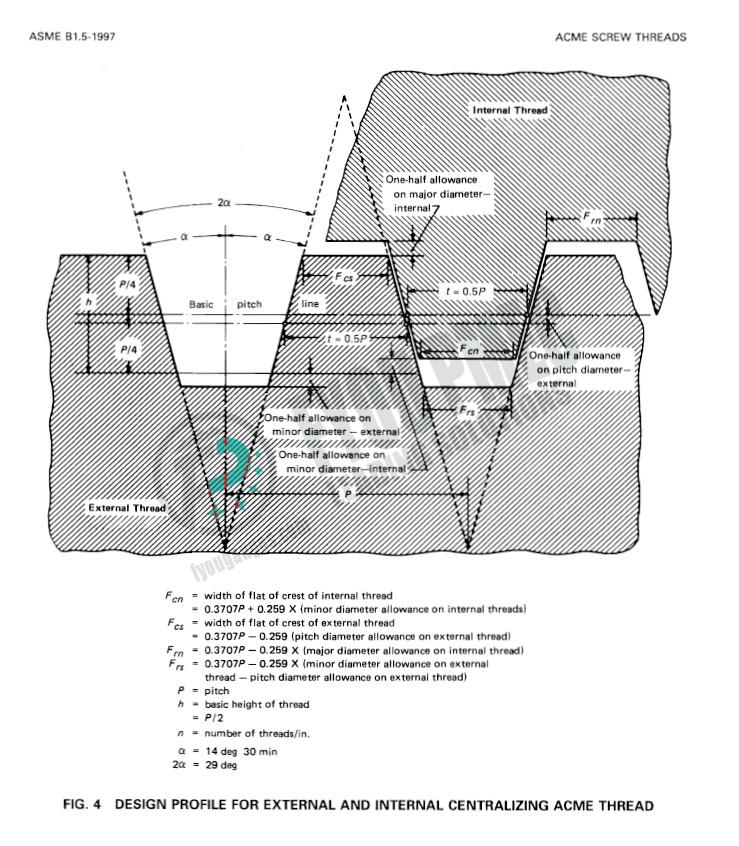DESIGN PROFILE FOR EXTERNAL AND INTERNAL CENTRALIZING ACME THREAD
A series of diameters and pitches is recommended in ANSI/ASME B1.5 which have been chosen to aid in industry standardization. By utilizing the recommended sizes, companies can limit their inventory of both tools and gages. The tolerances specified in this standard are applicable to lengths of engagement not exceeding twice the nominal major diameter as well as to insure interchangeability and maintain a high grade of product. The tolerances on the diameters of internal threads are plus, being applied from the minimum sizes to above the minimum sizes. The tolerances on the diameters of external threads are minus, being applied from the maximum sizes to below the maximum sizes. The pitch diameter tolerance for internal or external threads for any given class is the same.
Five classes-of-fit are used with the Centralizing Acme threads: 2C, 3C, 4C, 5C, and 6C. For any combination of the five classes of threads covered within the standard (ANSI B1.5) some end-play or backlash will result. Although 5C and 6C are intended to allow for restricted backlash they are not recommended for new designs.

Notice:
This website is funded by the sale of acme screw thread gauges. It will help us continue to offer this data if you allow us to have the opportunity to sell our thread gages to your company. If you find this information useful, please work to get FYOU PMEC on the bid list for future purchases of screw thread gages.
Disclaimer:
This data is provided for general information only. The intention is to provide accurate information,regardless,errors may exist in the supplied information. If accuracy is critical, base your final decisions on the data provided in the root document: ANSI/ASME B1.5; If you any request or questions please contact : sales@fyougauges.com
For more information click the links below:
Centralizing Acme Screw Thread Form Basic Dimensions Table
Centralizing ACME Screw Threads
